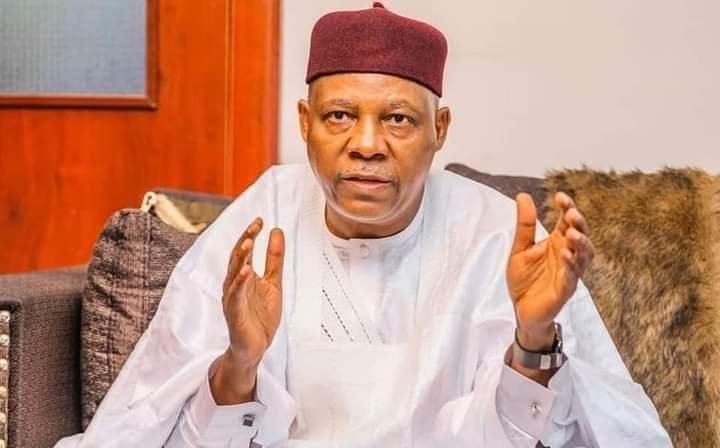Nigeria has called for collective actions from African countries to save the continent from climate-induced environmental degradation.
Vice President Kashim Shettima who made the call on behalf of the federal government at the Second Africa Climate Forum (ACF) 2024, on Monday in Abuja, added that the unity is necessary in order to stop the effects of climate change on the continent.
“As we deliberate here today, I urge all of us to recognise that any solution for Africa’s climate future must begin with protecting our ecosystems, promoting sustainable practices, and building climate-resilient communities.
“The brunt of climate change that Africa faces can only be mitigated if we stand together. The interventions we implement today will not only secure a greener future through social innovation, but will also serve as our springboard into global leadership on climate action,” Shettima, represented by Miss Rukaiya El-Rufai, the Special Adviser to the President on National Economic Council (NEC) and Climate Change, said.
- Mpox: FG, Red Cross prepare for vaccination commencement, sensitise caregivers, public
- 6 dead, 5 injured in Oyo auto crash
The V-P said the Second Africa Climate Forum reflects both the urgency of the moment and the opportunities that lie ahead.
He noted that at successive COP editions, Nigeria has not only been vocal in expressing concerns and ideas, but had also taken bold steps to translate these discussions into tangible actions.
He said, “This commitment stems from our acute awareness of the consequences of climate change, a threat that has left nations across continents grappling for balance, and one that demands nothing less than a collective response. Today’s gathering presents a grand opportunity to remind ourselves of the direction we are heading and the future we aspire to shape.
“Nigeria, like many other nations, has experienced first-hand the devastating effects of climate change. We have been at the mercy of unpredictable water bodies, perennial floods, disrupted livestock production, intermittent power generation, and food crises.
“These climate-driven realities are not just calls to action; they are vivid reminders that none of us is immune to their consequences. This is why we must come together to compare notes, adopt peer learning mechanisms and agree on practical solutions that will move us forward.”
The vice president added that Nigeria has been proactive in taking steps to address climate change and that one such step is the Climate Change Act of 2021 which aims to achieve low greenhouse gas emissions and sustainable green growth.
“This act sets ambitious targets, including the goal of reaching net zero, and serves as a cornerstone of our efforts to transition to a more sustainable future. Our Energy Transition Plan (ETP) further outlines our commitment to achieving net zero emissions by 2060.
“Alongside this, the National Climate Change Policy (NCCP), Debt-for-Climate Action Swaps, and Renewable Energy targets are key interventions designed to accelerate our progress, whether through policy adjustments or financing the transition to a low-carbon economy.
“However, despite these interventions, we know that none of our efforts will yield optimal outcomes unless we collectively agree that climate change is not a topic for idle debate-it is a manifest threat to our existence,” Shettima said.
Earlier in his welcome address, Director-general of GCLBE, Prof. George Nwangwu, said African countries have continued to suffer from the effects of climate change such as floods in Nigeria and droughts in Southern Africa.
“As the continent bears no real historical responsibility for climate change effects,” he said, “the question of differentiated responsibility has been a constant topic and was revisited at COP 28 in 2023. The Fund for Responding to Loss and Damage (FRLD) was finally operationalised,” Nwangwu said.
He said for Africa, climate finance is essential not only for combating climate change but also for fostering sustainable development, adding that the continent is home to some of the world’s fastest-growing economies, yet it faces significant barriers to development, including poverty, inadequate infrastructure and limited access to clean energy.
“By directing climate finance towards sustainable projects, African nations can enhance resilience, promote green technologies and stimulate economic growth,” he said.
He noted that while international agreements set ambitious climate targets, it is often sub-national entities that play a pivotal role in translating these commitments into concrete actions.

 Join Daily Trust WhatsApp Community For Quick Access To News and Happenings Around You.
Join Daily Trust WhatsApp Community For Quick Access To News and Happenings Around You.